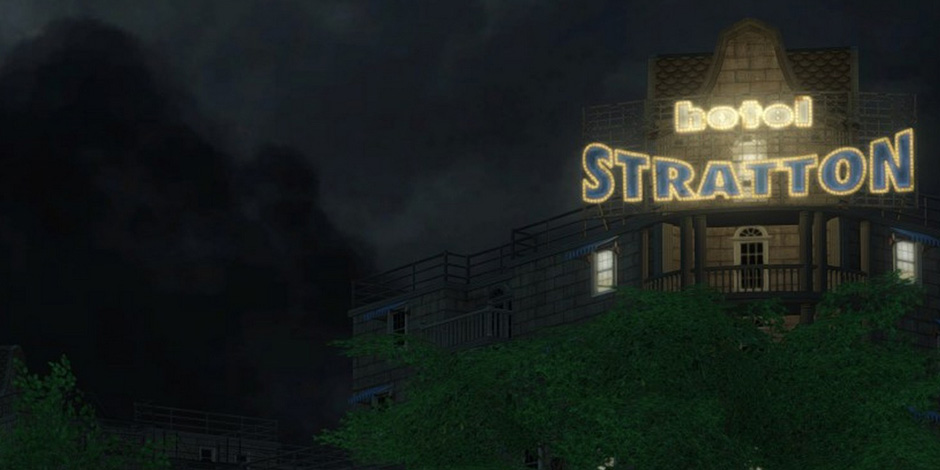12DOVE Verdict
Pros
- +
Occasionally almost feeling like The Godfather
- +
Imagining the possibilities of this concept in defter hands
- +
Matching squad members to the missions
Cons
- -
Simplistic resource management and strategy
- -
Awkward
- -
confusing combat
- -
Dry
- -
easily-ignored plotline
Why you can trust 12DOVE
In the beginning of Omerta: City of Gangsters, players pick a name, look, and history for their avatar--a would-be mafia boss who means to come to the United States and live out the American dream. In this case, that dream is to forge a Mafioso empire. This part feels good; it’s the beginning of the story, you’re creating a character. You’re involved and interested in seeing how it’ll play out. But that momentum doesn’t nearly last.
The strong premise of the story fades quickly, relegated as it is to small tidbits here and there as you progress through the game's missions. The people your mob boss meets in America are shallow representations of exactly the kind of folks you’d expect up-and-coming Dons to meet, but with no nuance, vibrancy, or life to them. They’re difficult to care about, and it’s not helped by the game’s visuals or audio. The stock Prohibition-era music that prattles on regardless of what’s happening in your game; the user interface that’s clunky to navigate and straight out of a last-decade PC title; the stiff, limited voice-acting that leaves you having to read lots of very boring text to know what’s happening; the bland, ugly city and its cookie-cutter inhabitants that hobble around. It all combines to make a game that won’t impress anyone at first glance.

"The strong premise of the story fades quickly..."
You play in two modes. In the first, your view is from above the city. You scroll around it and purchase new properties for your empire and send your gangsters out on missions. Here, the game is dry but smooth enough; there’s nothing visually or mechanically thrilling, but it’s at least not broken. The variety of missions your gangster can undertake helps keep things fresh, ranging from going to purchase a property, to performing a drive-by shooting that will win you control of a business, to bribing local police to get them off your back. Hand-picking from your stable of mobsters to send one out on a mission is enjoyable, as is matching their unique bonuses to the nature of the mission. These are two of the only parts of the game that make you feel like a mob boss, shrewdly and ruthlessly managing an empire--not just somebody holding a controller.
The interface through which all of this happens is serviceable, but initially counter-intuitive. It becomes obvious that this was a PC game first and foremost. The city view’s clunkiness can be excused --it’s an awkward style of play to translate to a console--but the unrefined nature of the combat sections is unforgivable, especially given how the similar portions of XCOM: Enemy Unknown handle so cleanly with a controller. Equally inexcusable is the text size--playing in 1080p on a 32” television, it was necessary to squint even at a normal gaming distance.

"The unrefined nature of the combat sections is unforgivable..."
Practically everything you do is in search of more of the game’s resources--dirty and clean money, firearms, liquor, and beer. There exists a strange economy where you can exchange any of these items for another through various offers that get posted over time. Generally, each level in the campaign will ask you to harvest a certain amount of a particular resource or two. The system is interesting at first, but it quickly proves itself to be easily gamed. Your task is usually simply turning one thing which you have a lot of into something you don’t have much of. It’s just a matter of finding someone with the right offer for you--50 units of beer for $500 in dirty money, or 20 firearms for 20 bottles of liquor, for example.
There are no rival gangs to encroach on your territory, so all the opposition comes from the police. They get upset when you’re too active, and you have a ‘heat’ rating that tells you how much trouble you’re in, but it’s laughably easy to lower. Just bribe them--it works every single time.
In the course of this resource-seeking and police-angering, you’ll come to a point where you need to fight, and that makes necessary the game’s second mode: combat. There are lots of reasons to fight in this game: you’re busting one of your men out of jail, or roughing up some locals, etc. In any case, combat is turn-based, tactical, and terrible.
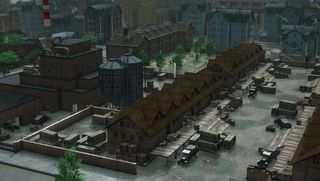
"This makes for a surprisingly tension-free game..."
In battle, the camera zooms in to give you a detailed look at the environment--normally some sort of non-descript warehouse. Each mobster can both move a certain amount of distance and fire a certain amount of shots on each of their turns. Moving is imprecise, and it’s very hard to tell when your unit is going to go into cover. Firing is simple and the game lets you know the likelihood of connecting with each shot (though sometimes it seems wrong), but characters are surprisingly resilient, and there is no permanent death. This makes for a surprisingly tension-free game, where poor tactics are easily corrected--not punished--and that means the game lacks much of the pleasurable, addictive frustration that makes other tactical titles so invigorating. Couple that with how little you're made to care about the circumstances of the battle, or the people in it, and the combat sections become dead in the water.
So the mechanics, narrative, and modes are poorly executed, but the very concept of a mobster strategy/tactics game can’t be denied. It’s a fantastic idea, and the novelty of feeling sort-of-almost-not-really like a mob boss will make the game enjoyable on occasion. Unfortunately, there’s not much here beyond a concept that you can only hope someone, someday will make a great game out of.
This game was reviewed on the Xbox 360.
More info
| Genre | Role Playing |
| Description | Omerta: City of Gangsters is a simulation game with tactical turn-based combat. |
| Platform | "PC","Xbox 360","Mac" |
| US censor rating | "Teen","Teen","" |
| UK censor rating | "","","" |
| Release date | 1 January 1970 (US), 1 January 1970 (UK) |
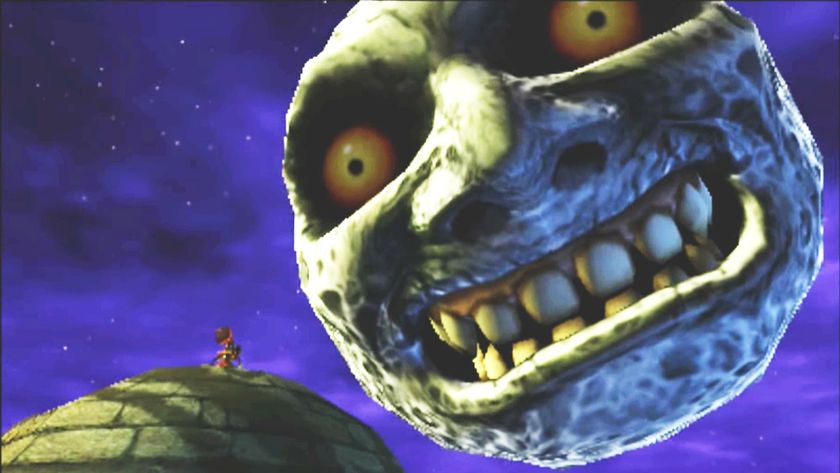
Despite Zelda: Majora's Mask basically being a horror game, one of its key devs didn't think its creepiest features were scary at all: "People on the team were like 'whoa!'"
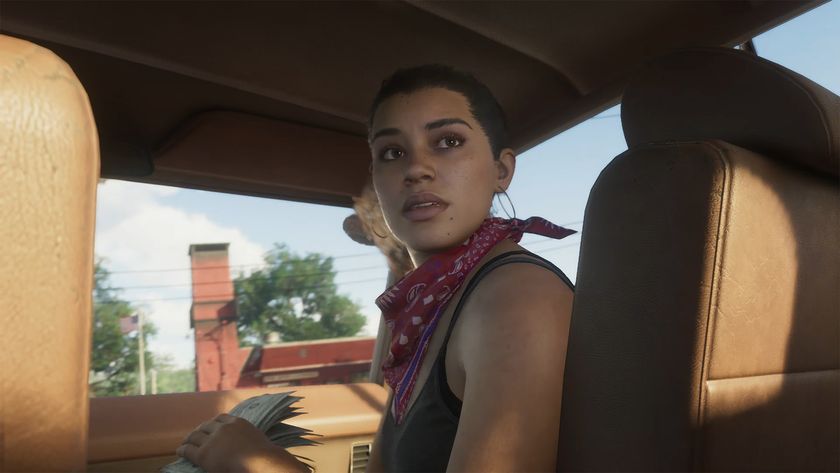
Corsair exec says GTA 6 is coming to PC in early 2026 and then quickly un-says that
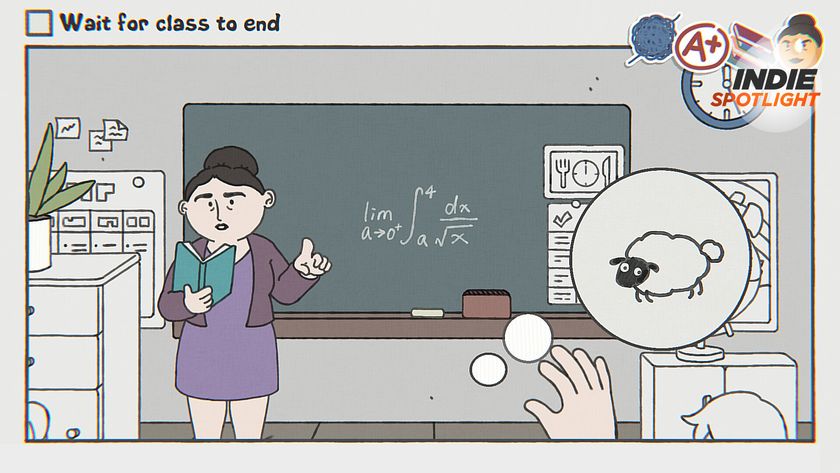
This puzzle game has done the impossible: waiting around for something to happen has never, ever been this fun
Most Popular





